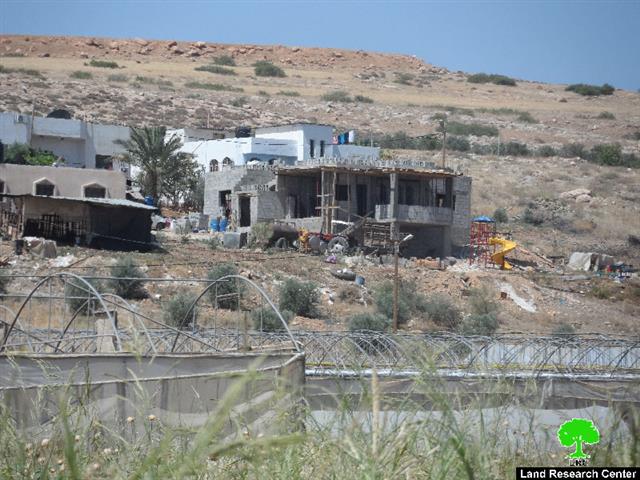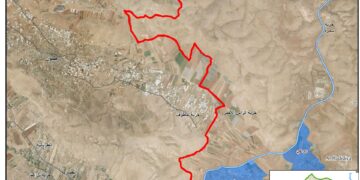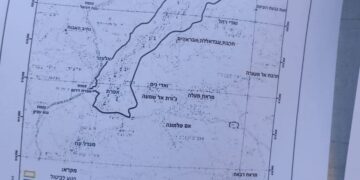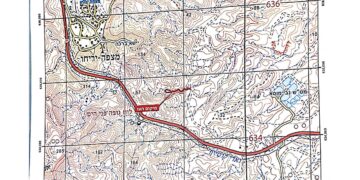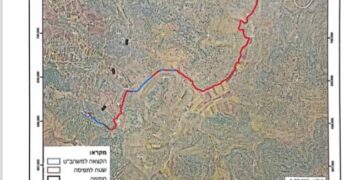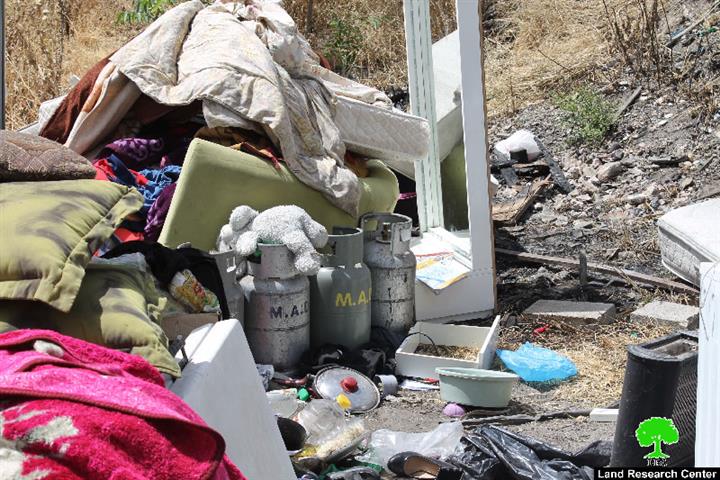- Violation: serving stop-work orders
- Location: Kardala village- Tubas governorate
- Date: May 17, 2016
- Perpetrators: Planning and Construction Committee- Israel Civil Administration
- Victims: two Palestinian families
Details:
A massive force from Israeli occupation army accompanied by the so-called Planning and Construction Committee- Israel Civil Administration raided on May 17, 2016 Kardala village and delivered stop-work orders on two residences on the claim of "unlicensed construction"
The orders gave the affected owners a deadline until June 16, 2016 to complete all licensing procedures in Israel Civil Administration. This comes in time with the hearing session of the Inspection Sub-Committee in the Israeli court of Beit El colony to consider the legal status of the notified structures. The following table shows information about the affected owners and residences:
|
Affected citizen |
Family |
Minors |
Area]m2 |
Nature of targeted structure |
No. of order |
Photo |
|
Adnan Fuqha |
2 |
0 |
200 |
Under construction house(basement + one story) |
||
|
Hussein Fuqha |
6 |
1 |
180 |
Under construction house (basement + one story) |
||
|
Total |
8 |
1 |
380 |
|
|
|
Source : Field observation- Department of Monitoring Israeli Violations- Land Research Center-2016
About Kardala:
Kardala is 18 km away from Tubas governorate; the village is still unacknowledged by the Israeli occupation. Kardala became an interest for the occupation due to the fact that it is located on lands classified as area “C” according to Oslo accords. According to the data of Kardala village council, there are 8 structures notified with stop-work orders, not mentioning the 13 facilities that were demolished in the area.
People of Kardala come hail originally from Tubas city; more specifically from the following families ( Sawafta, Daraghmeh, Qabha).
Land Research Center LRC sees that demolitions contradict with all of the International conventions and Humanitarian laws including:
- Article 17 of the (1948) Universal Declaration of Human Rights stating: “Everyone has the right to own property alone as well as in association with others. No one shall be arbitrarily deprived of his property.”
- Section ‹G› of article 23 of the (1907) The Hague Conventions asserting: “In addition to the prohibitions provided by special Conventions, it is especially forbidden to destroy or seize the enemy's property, unless such destruction or seizure be imperatively demanded by the necessities of war.”
- Article 53 of the Geneva Fourth Convention (1948) declaring: “Any destruction by the Occupying Power of real or personal property belonging individually or collectively to private persons, or to the State, or to other public authorities, or to social or cooperative organizations, is prohibited, except where such destruction is rendered absolutely necessary by military operations.”
- Section 1, Article 11 of the International Covenant on Economic, Social and Cultural Rights (1966): “The States Parties to the present Covenant recognize the right of everyone to an adequate standard of living for himself and his family, including adequate food, clothing and housing, and to the continuous improvement of living conditions. The States Parties will take appropriate steps to ensure the realization of this right, recognizing to this effect the essential importance of international co-operation based on free consent."
Prepared by
The Land Research Center
LRC

